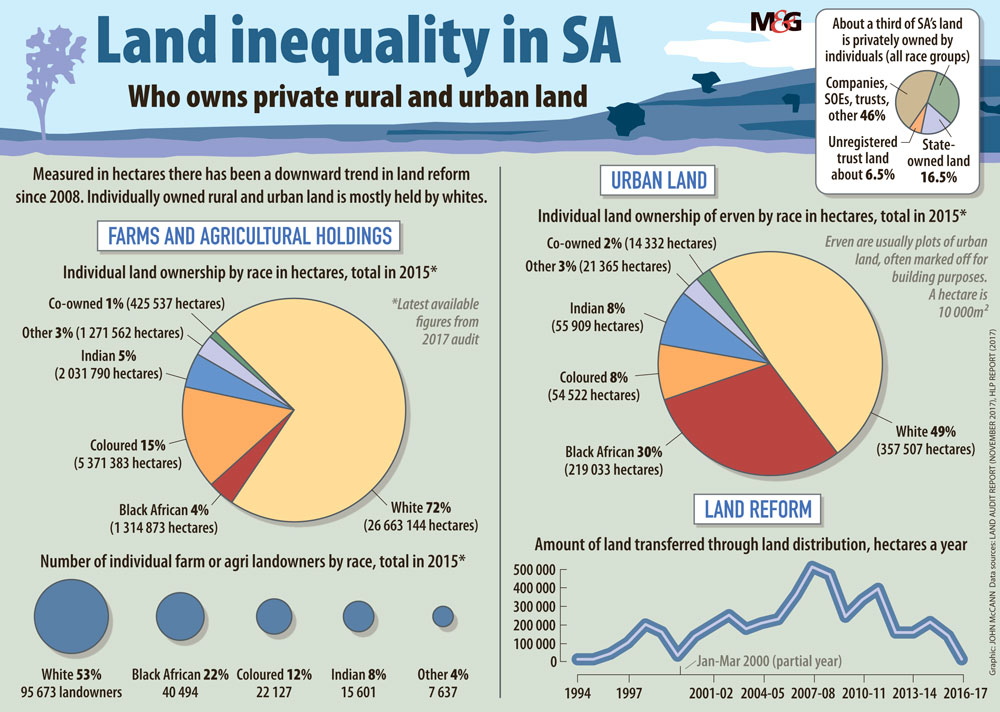The ANC has suggested that expropriated land should go to the people who work on it. The EFF
The ANC’s decision to vote in favour of amending the Constitution to expropriate land without compensation is a departure from its policies and the party has no idea how it should be done.
ANC head of economic transformation Enoch Godongwana this week said there were no policy documents outlining how the resolution from its December conference should be implemented, and it would wait for Parliament to finalise the manner in which the land transfer should take place. “The ANC agreed both in conference at Nasrec and in the lekgotla that we have to work out a fairly detailed document, which we don’t have now,” Godongwana said.
Economic Freedom Fighters (EFF) commander-in-chief Julius Malema on Tuesday brought a motion to Parliament, offering the ANC the EFF’s 6% representation to secure the two-thirds majority required to amend the Constitution.
“The time for reconciliation is over, now is the time for justice,” Malema roared from the National Assembly podium during the land debate.
The motion was passed and it was agreed that a parliamentary ad-hoc committee should be set up to establish which sections of the Constitution would need to be amended.
But while the ANC is waiting for Parliament, the EFF already has a plan to expropriate land. As socialist party, the EFF believes all land, no matter whether owned by black or white people, should be transferred to the state.
“State custodianship of land will mean those who currently occupy land should apply for licensing to continue using the land and should clearly state what they want to use the land for over a period of time. Under this legislation, no one should be allowed to own land forever,” the EFF policy document on land states.
The ANC decided on land expropriation without compensation during a hotly contested plenary meeting at its national conference. Although the manner in which the policy should be implemented was not discussed, the party already has a few ideas about who should get the land. Godongwana said there was a consensus that people who work on the land should own it.
“We are saying people who are landless but who work the land must own it. It also applies to the West Rand [in Johannesburg], for example: you have got 124 mineworkers who own a herd of 4 700 cattle and they don’t have grazing lands. In rural areas people are working the land but don’t have any land,” he said.
The EFF believes that instead of the government identifying people who need land, it should review applications. The EFF land policy also sets a limit of a 25-year lease for state land.

The ANC, in its conference resolutions, said food security must dictate land reform. Godongwana said this was an “important caveat” to the resolution. But the EFF believes land should first be redistributed, and a discussion on food security should follow. In its policy documents, the EFF sets out how the government should prioritise small-scale farmers and says that more than half the food consumed by people at schools, hospitals and prisons should be bought from the state.
The current expropriation process has several stages, said Annelize Crosby, head of land affairs at AgriSA. “The Expropriation Act, which dates back to 1975, regulates the process,” she said. “It needs to comply with the constitutional requirements for administrative justice.”
Under the current law, this in-cludes timeously giving a landowner notice of expropriation and an opportunity to object. Then the state is compelled to hold hearings to look into the objection. The state also needs to make a valuation of the land, make an offer and give the owner an opportunity to reject it and make a counter offer.